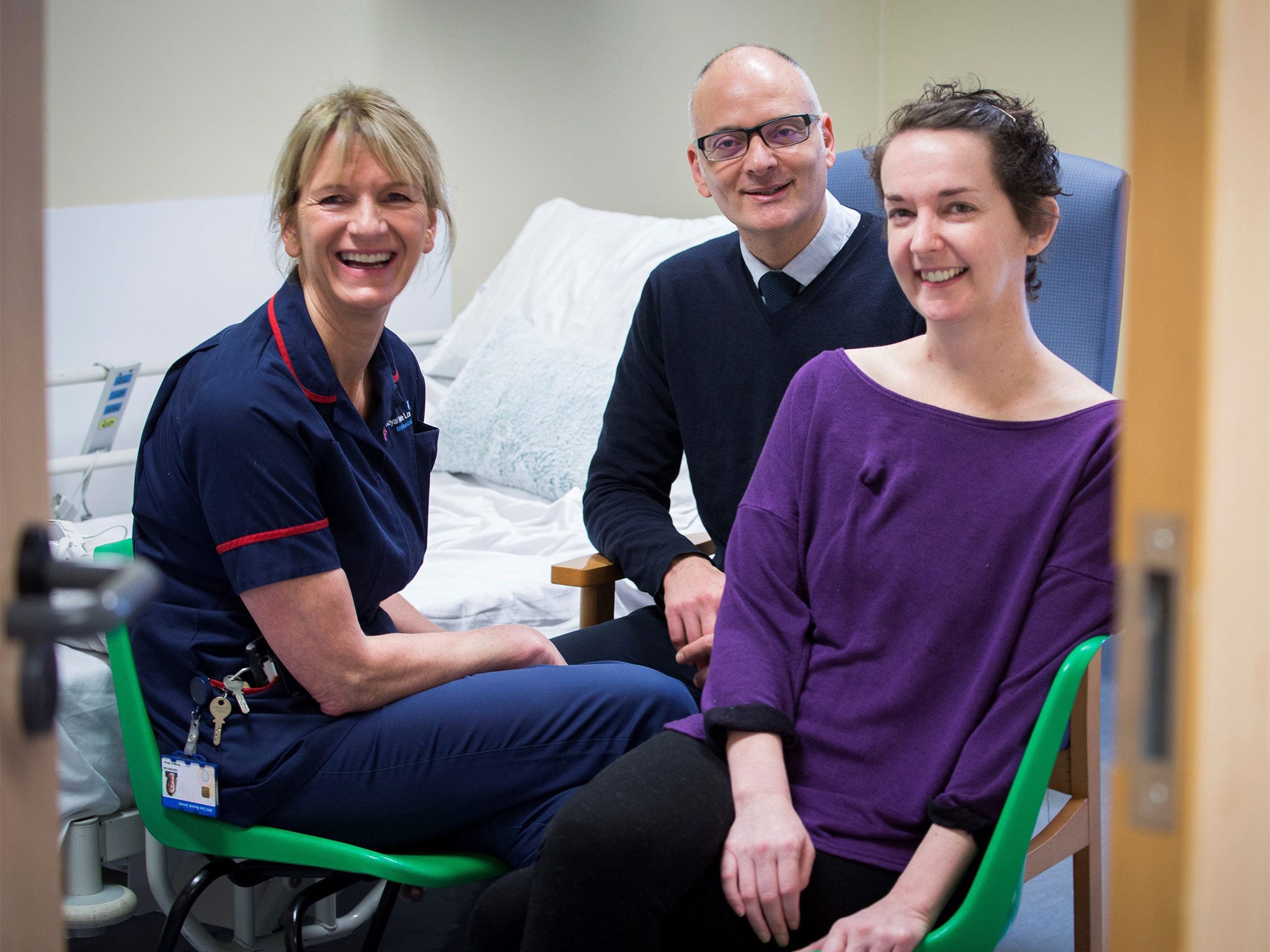Ebola nurse Pauline Cafferkey cleared of professional misconduct after being accused of lying about symptoms
Ms Cafferkey probably skipped a screening because she was exhausted after a long journey and was coping with the early effects of the Ebola virus, the panel heard

Ebola nurse Pauline Cafferkey will still be allowed to practise in the UK after being accused of hiding her symptoms.
The decision by the Nursing and Midwifery Council in Edinburgh followed a probe into the circumstances of her return to the UK, after which she continued to suffer with the virus.
An independent panel at the Nursing and Midwifery Council (NMC) in Edinburgh found that the three charges against Ms Cafferkey weren't proven and so her fitness to practise was "not impaired".
The Scottish medical worker was infected with Ebola while she was working as a nurse in Sierra Leone in 2014.
She returned to the UK soon after and was still infected by the disease. She was treated in the UK and her problems continued for months after.
The NMC had argued that Ms Cafferkey allowed an incorrect temperature to be recorded while she was being screened at Heathrow Airport on her return. She then left the screening without having recorded her true temperature and so hid the extent of her disease, it argued.
But the panel found that the nurse hadn't looked to mislead Public Health England.
Ms Cafferkey, from Cambuslang, South Lanarkshire, was among a group of doctors and nurses returning to Heathrow on December 28 2014 after a six-week deployment to the west African country.
In agreed evidence put before the panel, it was said screening staff from Public Health England (PHE) at the airport "were not properly prepared to receive so many travellers from at-risk countries", and this resulted in the area being described as "busy, disorganised and even chaotic".
The hearing was told that a doctor took Ms Cafferkey's temperature and found it to be up to 38.3C (100F). A high temperature can be an early sign of an infection.
"Dr one says that registrant A (someone else in the group) stated at this point that she would record the temperature as 37.2 degrees on Ms Cafferkey's screening form and then they would 'get out of here and sort it out'," the evidence states.
The facts show Ms Cafferkey stated she cannot remember who said it or who entered the lower temperature on her form.
She admitted taking paracetamol after she realised she had an elevated temperature.
The nurse was eventually cleared for onward travel, arrived in Glasgow late in the evening and awoke feeling "very unwell" the following day, December 29 2014.
She was diagnosed with Ebola - with one of the highest viral loads ever recorded - and spent almost a month being treated in an isolation unit at London's Royal Free Hospital.
Medics said the early symptoms would have impaired her judgement and an allegation she had acted dishonestly at Heathrow were dropped on Tuesday.
In submissions on Tuesday, the NMC said Ms Cafferkey "potentially put the public at risk" through her actions and that her conduct had "undermined" public trust and confidence in the nursing profession.
Anu Thompson, representing the NMC, did not dispute Ms Cafferkey had been acting for the public good in providing humanitarian assistance in Sierra Leone.
Mrs Thompson said there were significant mitigating circumstances in Ms Cafferkey's case but told the panel: "The fact that she was suffering from the early onset of the virus cannot absolve her of all responsibility for her conduct, nor can it remove her understanding or knowledge of the disease."
Describing the potential risk as "significant", she asked the panel to make a finding the nurse's fitness to practise is impaired "to protect the public and protect the public interest".
The nurse's legal team pointed to her "previously unblemished record" and insisted the legal threshold for a finding of misconduct against her has not been met.
Joyce Cullen told the panel that, in going to Sierra Leone, Ms Cafferkey had strengthened the reputation of the profession.
Ms Cullen pointed to the fact that, at the time of the screening, Ms Cafferkey was exhausted after completing a 22-hour journey to London.
She was "very likely to be substantially impaired" as a result of exhaustion and the early effects of the Ebola virus, the panel was told.
Ms Cafferkey went on to have two further admissions to hospital - one with a relapse of the Ebola virus and the other with chronic meningitis.
Additional reporting by Press Association
Join our commenting forum
Join thought-provoking conversations, follow other Independent readers and see their replies
Comments
Bookmark popover
Removed from bookmarks